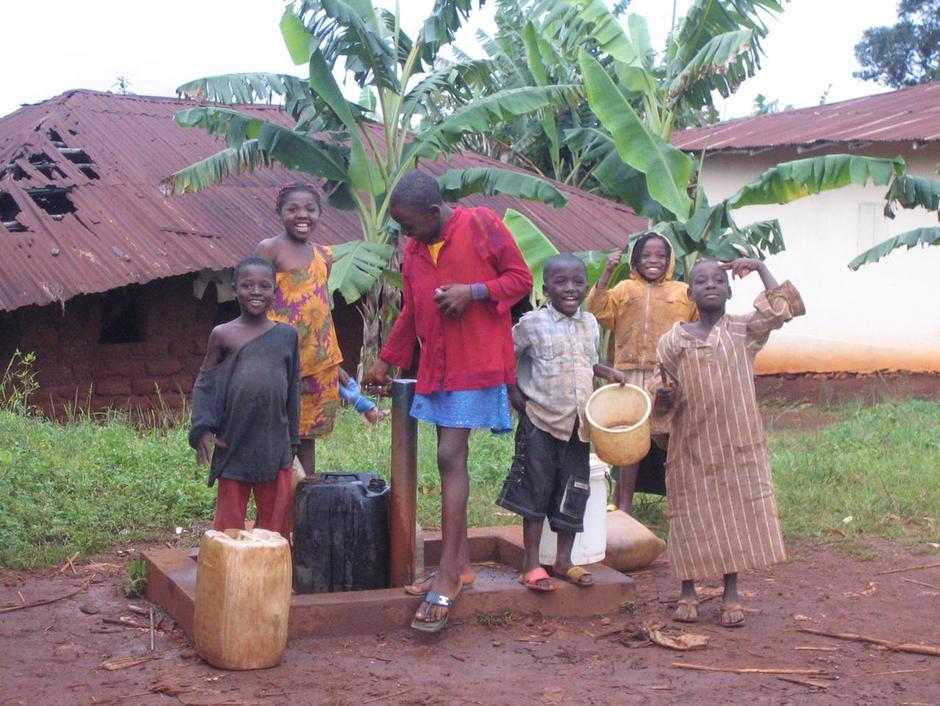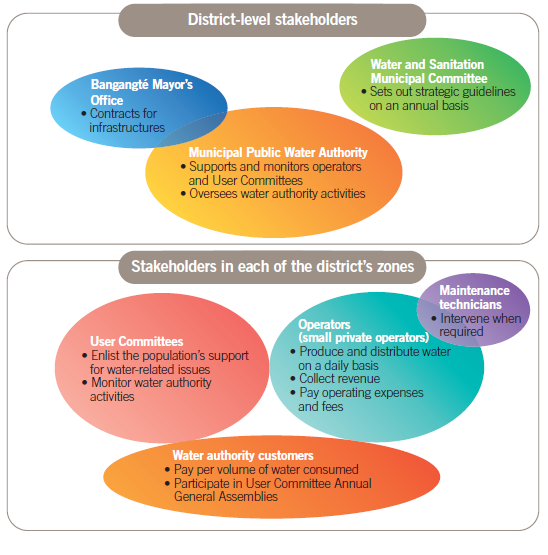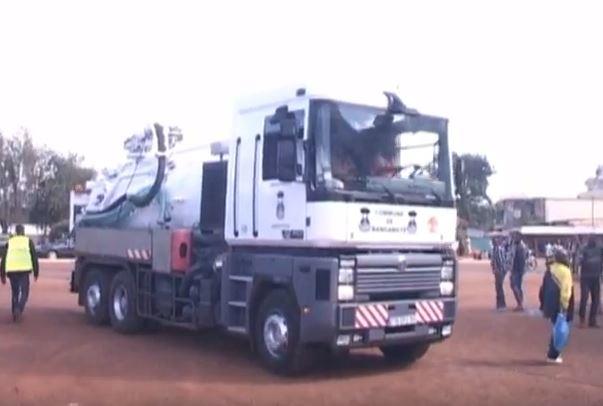
Humanitarian and Development
Place
Bangangté, Cameroun
Sponsors
François Lacour
Richard Nana-Dwanang
Frédéric Plumas
Grants
€25,000 during the Committee meeting on 04/07/2006
€350,000 during the Committee meeting on 09/06/2010
€50,000 during the Committee meeting on 09/04/2013
€26,000 to the Board of Directors on 23/06/2014
€25,000 during the Committee meeting on 24/04/2017
€10 000 during the Committee meeting on 28/11/2018
Project leaders
The village of Bangoua is located in a mountain range in the west of Cameroon. In 1984, a first water network was built to provide drinking water to its population. An architecture of four separate, autonomous, and interconnected services had been favoured to respond to the highly dispersed population and the singular topography of the region. Unfortunately, over time, wear and tear took its toll and the network stopped working in 2003 due to a lack of maintenance. As the population was deprived of drinking water they collected water wherever they could: springs, groundwater outcrops, streams, etc. Besides the difficulty of transporting this water, they were, once again, at the mercy of all the sanitary problems related to drinking water of questionable quality.
The Enfants du Ndé association responded to this situation. Created in 2002 by the Cameroonian Diaspora, it aims to promote mutual aid and solidarity with children from the Ndé region in western Cameroon.
Audit and initial work in 2006
An initial appraisal was carried out by two Veoliaforce volunteers from the Veolia Foundation in February 2006. They identified all the necessary conditions to rehabilitate the water network. From a technical point of view, boreholes, water treatment plants, standposts, and connections needed to be repaired and the operation of the network under pressure needed to be verified. From a social point of view, facilities needed to be protected against vandalism and a local water services organization, in the form of a management committee and a supervisory body, needed to be created, and training for the employees in charge of this service (water supply operators, centre manager, managers) needed to be provided.

Solicited by a member of the association and Richard Nana Dwanang, a Veolia employee, the Foundation financed the first wave of works to begin repairing the network and also to start to train people who were likely to operate the service.
The implementation of the project resulted in the development of a larger programme: the Modeab. This Sustainable Water and Sanitation Management project concerned Bangangté, the municipality in which the village of Bangoua is located.
In 2017, the Veolia Foundation extended its interest in Modeab by funding an evaluation audit to draw all the lessons from this exemplary program.
The sanitation challenge in Bangangté
Bangangté also benefited from a programme to improve sanitation. Les Enfants du Ndé coordinated a sewage sludge treatment and recovery project in 2013 with the technical, financial, and operational support of the Veolia Foundation. It included support in social planning, preliminary studies, the establishment of a municipal mechanical drainage service, using reed beds to treat sludge, and the recovery of material by co-composting with solid waste.

The municipality thus acquired a tank truck and built a cleaning and parking site. The treatment plant was then built according to the specifications drawn up in the preliminary design phase and the employees were trained to operate the plant and produce compost, in conjunction with the association. In 2018, the Veolia Foundation renewed its support for the sanitation system as designed in Bangangté by allowing Enfants du Ndé to acquire equipment (spare parts) to maintain the hydro-cleansing truck. A Veoliaforce appraisal assignment is also planned to supplement the training of local staff on equipment maintenance and safety measures.
Six new standpipes in Bangoua and Bandiangseu
In 2017, the Veolia Foundation funded an extension to the Modeab programme launched ten years earlier. Prodeso, the new project managed by Les Enfants du Ndé, extended that of the Modeab to areas that did not yet have access to the water network. The two villages of Bangoua and Bandiangseu were included: six standpipes will shortly be installed to supply drinking water to 9 000 people who currently do not have access to it. The success of Modeab now irrigates the region.
A rewarding approach
- FEICOM National Award for Best Practices in Local Development 2012 - Category: Hygiene and Sanitation First prize for the installation of ecological latrines in schools and markets
- The United Nations Public Service Excellence Award has been won by the community of Bangangté in renovating its drinking water systems - for its efforts to develop its wastewater system and create a true Public Water Service.

